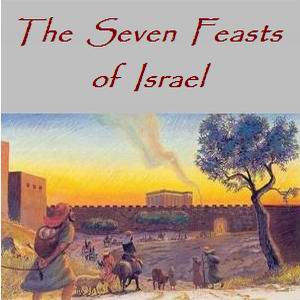


The subsequent festival was called pesah, generally rendered "Passover" in reference to God's passing over or sparing of the Israelites, although the precise origin of the word is unknown. That night, the Lord killed Egypt's firstborn but spared Israel. They ate the food hastily and with their sandals on their feet as a sign of their readiness for a quick departure. They also prepared bitter herbs and bread without yeast. They used hyssop to apply blood from the lambs to the sides and tops of the door frames of their homes and roasted the lambs. According to Exodus 12, on the evening of the 14th of the first month (Abib later called Nisan), the Israelites gathered in family units to sacrifice a yearling sheep or goat. The Bible traces the origin of Passover to the exodus. On the other hand, the festivals could become meaningless rituals and were subject to the criticism of the prophets ( Isa 1:13-14 ). It is not surprising that each of the major feasts is in some way alluded to in the New Testament. They were typological in that they anticipated a greater fulfillment of the symbolism of the feasts. They were theological in that the observance of the festivals presented the participants with lessons on the reality of sin, judgment, and forgiveness, on the need for thanksgiving to God, and on the importance of trusting God rather than hoarding possessions. They were commemorative in that they kept alive the story of what God had done in the exodus and during the sojourn. They were communal in that they drew the nation together for celebration and worship as they recalled the common origin and experience of the people.

Israel's festivals were communal and commemorative as well as theological and typological. In addition, the Israelites observed the Sabbath every week and the feast of the New Moon every lunar month. After the exile, the Jews added memorial days for the fall of Jerusalem (eventually fixed as the Ninth of Ab), Purim, and the Feast of Dedication (Hanukkah). The major festivals of Old Testament Israel were, in calendar order, Passover, Unleavened Bread, Firstfruits, the Feast of Weeks (Pentecost), the Feast of Trumpets, the Day of Atonement, and the Feast of Booths (Tabernacles or Ingathering).


 0 kommentar(er)
0 kommentar(er)
